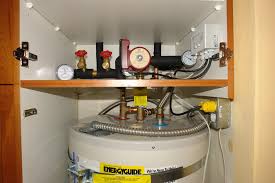How to Assess Fire Damage: A Homeowner’s Guide to Home Restoration
You never think it will happen to you until it does. A fire can strike unexpectedly, leaving homeowners in shock and unsure of what to do next. Understanding how to assess fire damage effectively is crucial for a smooth recovery process.
Read on to learn some tips on how to assess fire damage.
Ensure Safety First
The foremost priority after a fire incident is ensuring the safety of yourself and your family. Before returning to the site, wait for confirmation from emergency services that it is safe to enter. Even then, proceed with caution, as structural damage may not always be visible.
Use protective gear such as gloves, masks, and sturdy footwear to avoid injury from debris. Watch for hazards like weak floors, exposed wires, or toxic materials. If you have pets or children, keep them away from the damaged area until it is fully secure.
Your safety and that of your family should always come first in any post-fire situation. Proper home restoration after fire damage requires a clear mind and physical well-being.
Document the Damage
The fire damage recovery process begins with a thorough assessment of the affected areas. Before any cleanup or restoration work can begin, document the damage by taking photos and videos of each room and affected item. This documentation will serve as proof for insurance claims and help you keep track of the extent of damage.
Getting the documents in order is necessary for a smooth claims process. Get all relevant insurance info.
Then, contact your provider to start the claim process. This can help you receive the necessary funds to cover the costs of restoration and repairs.
Contact Professionals
Repairing fire damaged walls and floors is not a DIY project. Fire damage restoration needs special tools and expertise for proper cleanup and repair. Contacting a professional restoration company can help alleviate the stress of dealing with fire damage on your own.
Call a company who knows how to assess fire damage and has experience in dealing with these types of situations. They can assess the damage, make a restoration plan, and use their expert equipment to restore the site quickly.
Assess Personal Belongings
Fires can harm personal belongings, like furniture and clothes, in addition to damaging structures. Before discarding any damaged items, consult with a professional to determine if they can be salvaged.
If you have irreplaceable items, like family heirlooms or important documents, tell the restoration company. They will prioritize their restoration. They may also be able to provide tips on how to properly care for these items during the restoration process.
House restoration services after a fire can help save your home and personal belongings from further damage. Using pros to assess the damage can find hidden issues. These include smoke and water damage.
Take Care of Your Mental Health
Dealing with fire damage can be a traumatic experience, and it is important to take care of your mental health during this difficult time. Seek support from loved ones, or consider seeking professional help if needed. It is normal to feel overwhelmed, anxious, or even guilty after a fire incident.
Remember to take breaks when needed and find healthy ways to cope with the stress. Lean on family, friends, and professionals for emotional support during the recovery process. This can also help you stay focused and make sound decisions in the restoration process.
Plan for Future Prevention
After experiencing a fire, it’s vital to implement measures to prevent future incidents. Start by identifying the root cause of the fire with the help of fire professionals and take steps to address any hazards. This might include fixing faulty wiring, maintaining heating appliances, or storing flammable materials safely.
Install smoke detectors and ensure they are in good working order throughout your home. Consider using a fire-retardant spray on fabrics and furnishings to reduce the risk of fire spreading.
It is also wise to make a fire escape plan for your family. Do regular fire drills to ensure everyone knows what to do in an emergency.
Check for Hidden Damage
Fires can hide damage that isn’t obvious at first. If ignored, it can cause long-term problems. After ensuring the main damages are accounted for, conduct a thorough inspection of areas that could harbor unseen issues.
Check for signs of smoke damage in the walls, ceilings, and plumbing systems. Smoke can seep into these areas, causing odors and potential health problems. Similarly, inspect for water damage that could have resulted from firefighting efforts, such as mold growth in damp areas.
Review Insurance Policy Details
Understanding your insurance policy is paramount in the recovery process after a fire. Review the terms and conditions of your coverage to know what is covered and what exclusions might exist.
Know your entitlements, like temporary accommodation. This will help you make informed decisions about your recovery and reinstatement.
If needed, contact your insurer for guidance on your policy. This approach can prevent surprises during the claim process. It will help ensure a smooth, successful recovery.
Secure the Property
Once the immediate crisis is managed, it is essential to secure your property against additional damage or intrusions. Board up windows and doors that may have been damaged or left open due to the fire.
Use temporary fencing, if necessary, to prevent unauthorized access to your property. To preserve what remains, protect your home from more weather damage or theft. This will allow for safe restoration efforts.
Manage Legal Responsibilities
After experiencing a fire, it’s important to manage any legal responsibilities that may arise. This includes understanding zoning regulations and building codes that could impact the rebuilding process.
Contact your local authorities to determine any necessary permits or approvals needed for construction work. If a neighbor’s property was affected by the fire, it may be necessary to address any claims or issues arising from the incident, potentially involving legal consultation.
Additionally, if you were renting the property, review the terms of your lease or rental agreement to understand your obligations and rights. Both homeowners and renters should keep an open line of communication with their insurance providers to ensure all legal requirements related to fire damage compliance are met.
Preventing a Fire Damage
Experiencing a fire is a devastating and traumatic event, but knowing how to assess fire damage can help ease the recovery process. With proper planning, you can restore your home and belongings back to their pre-fire condition. In addition, making future prevention efforts can provide peace of mind for the well-being of your family and property.
Visit our website for more like this.





